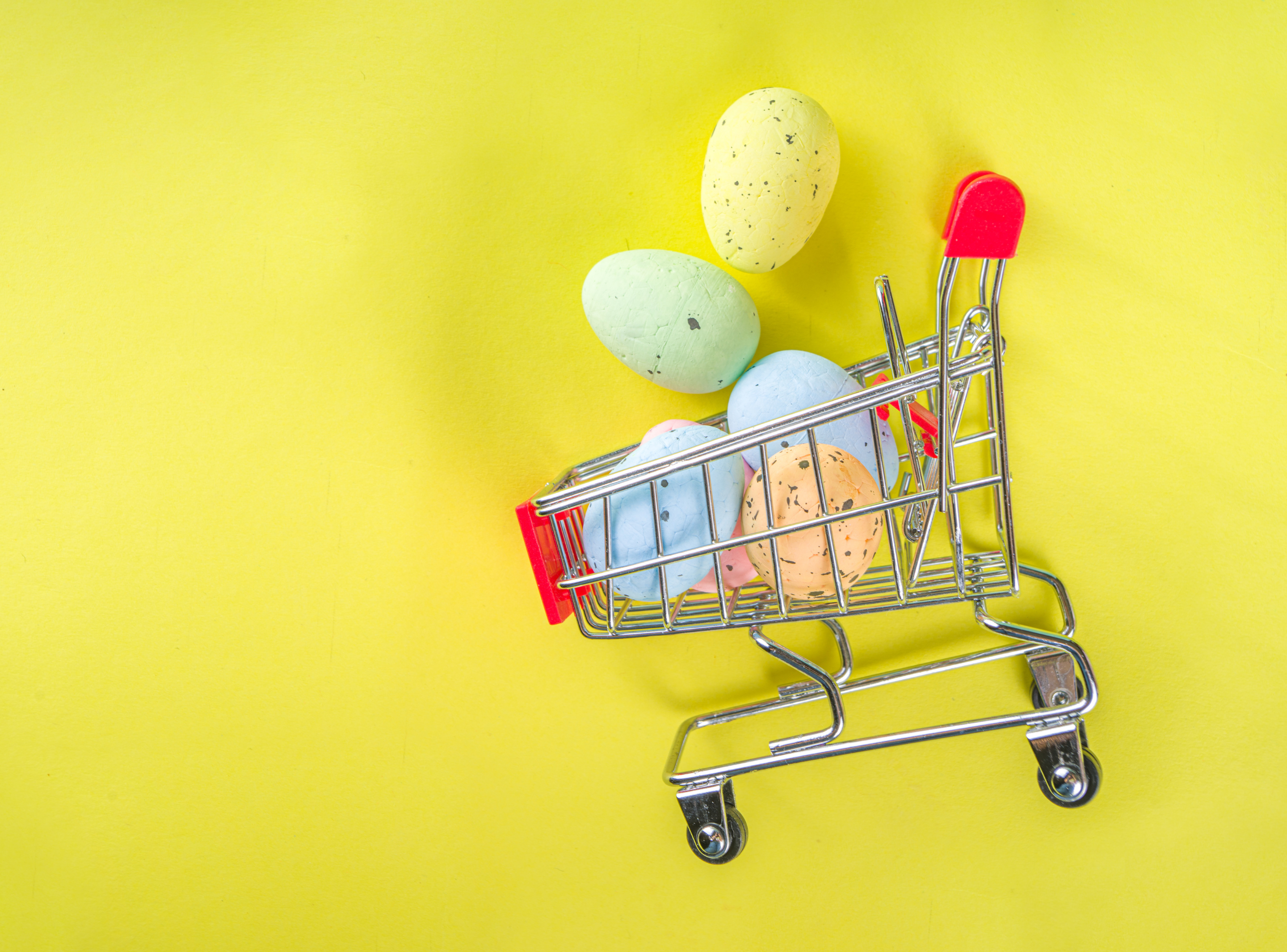Easter is one of the most important holidays in the UK for retailers and brands, with supermarkets and stores offering a wide array of Easter-themed products and promotions. In the UK, Easter’s cultural significance has been greatly influenced by its commercialisation.
When was Easter first commercialised in the UK?
Since the spread of Christianity, Easter has been observed in the UK as a religious festival. Easter, however, started to become commercialised in the UK in the late 19th century.
Easter egg distribution customs can be traced back to the early Christian church, when gifting eggs served as a sign of fresh life and rebirth. Easter egg production and consumption had expanded by the 19th century, and chocolate eggs had gained popularity as gifts.
UK-based confectionery company, Cadbury started making chocolate Easter eggs in 1875. Originally, these eggs were offered in simple cardboard cartons, but in 1905, Cadbury added decorative packaging and topped the eggs with its renowned Dairy Milk chocolate.
Easter eggs were eventually produced by other makers as well, including Nestlé and Mars, and the custom of giving Easter eggs as gifts grew throughout time. Since then, hot cross buns and Easter decorations have grown in traditions as the holiday continues to become more commercialised each year.
Easter Brand strategy trend in 2023
Easter provides a great opportunity for brand to increase their sales at a time in the year celebrated as a time of rebirth and renewal. In this blog article, we’ll look at a few strategies for how brands may make the most of the potential in-store.
Seasonal Packaging
The release of limited-edition packaging for a brand’s product range is one of the simplest methods to capitalise on Easter. This might be as simple as designing brand-new packaging or modifying current packaging with an Easter-themed design. Products with seasonal packaging not only stand out more on store shelves but also appeal to shoppers who are feeling festive.
Easter-Themed Products
This could be anything from hot cross buns to chocolate bunnies and eggs, or even themed home decor like Easter decorations. Brands may capitalise on the Easter spirit and draw customers looking for seasonal goods by developing themed products.
Collaborations and Promotions
To create distinctive Easter items or bundles, brands might collaborate with other complementary brands or supermarkets. These can include Easter baskets or hampers filled with a variety of goods with an Easter theme. Brands can also use incentives like discounts, coupons or competitions to encourage customers to buy their product.
Displays & Merchandising in-Store
Brands and supermarkets can collaborate to design striking displays that draw in customers and entice them to make impulsive purchases. This can entail setting up themed displays, offering specials at the ends of aisles, or setting up Easter merchandise in highly trafficked areas of the business. If you haven’t already arranged your field marketing needs, we may know someone who can help 😉.
Social Media Marketing
To interact with their audience on social media, brands might hold contests, establish social media campaigns with an Easter theme, and publish user-generated material. This fosters a sense of neighbourhood and motivates followers to tell others about their Easter celebrations.
Easter Recipes
Brands could develop delicious recipes with an Easter theme that uses their goods as the main ingredients. The brand’s website, social media platforms, and in-store displays all allow for the sharing of these recipes. Customers are encouraged to buy the products and attempt the recipes, which boosts engagement and brand loyalty.
Easter Egg Hunts
In supermarkets and beyond, brands can host Easter egg hunts where shoppers can look for eggs containing deals or coupons for the brands goods. Customers will enjoy the experience, which will inspire them to buy the product.
Limited Edition Flavours
Brands may introduce limited-edition product flavours that are only sold during the Easter season. A cereal company might introduce a limited-edition hot cross bun flavour, for instance. Customers are enticed to buy the products as a result of the sense of exclusivity and urgency this produces.
Charity Partnerships
For Easter, businesses might collaborate with a charity and donate a portion of their sales to the organisation. In addition to advancing a worthy cause, this strengthens consumer perception of the brand and motivates them to buy its goods.
Sampling Events
Customers can sample brands’ Easter-themed products at in-store sampling sessions. This increases the likelihood that a sale will be made by allowing buyers to sample the products before buying. Additionally, it gives them a positive experience that makes them want to tell others about it.
The Effects of HFSS this Easter
The HFSS legislation, which prohibits the promotion and advertising of high fat, salt, and sugar goods in the UK, came into force last year and has had a significant impact on the in-store promotions and displays used by retailers throughout recently. Easter marketing will have to work around the law for the first time this year.
The HFSS legislation is likely to have an impact on many Easter products, including chocolates and sweets, which are frequently loaded with sugar and calories. Supermarkets will be noting their strategies from Christmas and Valentine’s Day to learn how to continue to increase sales by using adopting these new tactics.
Combining great sales with great data
It’s critical for brands to collect data analytics during seasonal holidays like Easter for a number of reasons:
Understanding consumer data: Helps brands better understand the purchasing patterns of their customers, especially during seasonal holidays. When choosing which products to carry, how to price them, and how to market them to increase sales, brands can use this information to make educated judgements.
Trend-spotting: Examining data from previous Easter seasons can assist brands in seeing patterns and trends in consumer behaviour, such as the most well-liked products or the most effective marketing strategies. This information can help brands plan for future Easter seasons and alter their strategy accordingly.
Assessing the success of a campaign: Around Easter, brands can assess the success of their marketing initiatives by analysing sales statistics and keeping an eye on customer comments. Brands can use this data to make data-driven decisions about which campaigns to keep running, modify, and end.
Improved inventory control: By examining Easter sales data, brands can more effectively control their stock levels and make sure they have enough of the proper products on hand to satisfy consumer demand. Brands may minimise stockouts, cut waste, and streamline their supply chain by doing this.
Hop above the rest
Are you hoping to take advantage of Easter and other seasonal events this year?
Reapp Analytics and our knowledgeable field marketing team are well and truly the best options at hand. Enhance your Easter sales plan through access to our robust data analytics platform, offering real-time insights into customer behaviour, sales trends, and campaign effectiveness.
Additionally, we can help you at every stage of your campaign, from planning and execution to measurement and optimisation, thanks to our skilled field marketing team.
Don’t pass up the chance to increase Easter sales and propel your business forward. To find out more about how Reapp Analytics and our field marketing team may aid in your success, get in touch with us right away.




